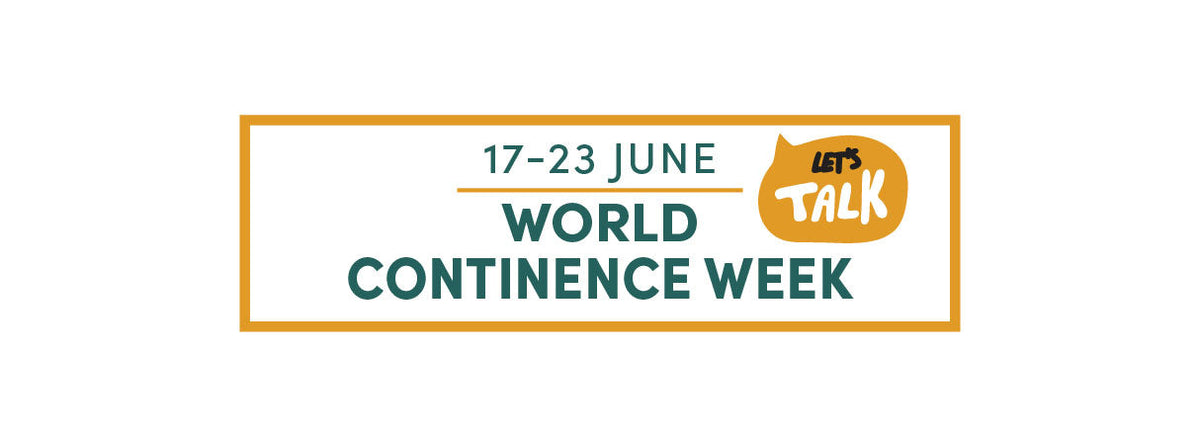
World Continence Week 2024 - Let’s Talk About Incontinence
|
|
Time to read 4 min
|
|
Time to read 4 min
This World Continence Week 2024, we invite you to join us in breaking the silence surrounding this common condition. Let’s talk about incontinence — openly, honestly, and without taboos.
World Continence Week is a global initiative that aims to raise awareness about incontinence, a condition affecting millions worldwide. Initiated by the International Continence Society, World Continence Week has been observed annually since 2009. The campaign has grown each year, increasing participation from countries across the globe. Each year, the event focuses on different themes to address various aspects of incontinence. This year, we focus on one of the most important aspects: having open and honest conversations about incontinence with friends, family, and health professionals. Let’s talk!
This week-long event brings together individuals, healthcare professionals, and organizations to highlight the importance of continence care and support. The primary goals are to educate the public, reduce the stigma associated with incontinence, and promote advancements in continence care. The best way to achieve these goals is by talking openly to break barriers and get the right support from professional healthcare providers and loved ones.
Definition and Types of Incontinence
Incontinence refers to the involuntary loss of bladder or bowel control. It can be categorized into several types:
Incontinence affects people of all ages and genders, with a higher prevalence among older adults and women. Over 5 million Australians—one in four people aged 15 years or over—are incontinent. It significantly impacts daily activities, emotional well-being, and social interactions, leading to a diminished quality of life if not properly managed.
Stigma is one of the biggest challenges faced by those with incontinence. This World continence Week let's raise awareness and help to normalise conversations about continence health, reducing the shame and embarrassment many feel. Here is a list of things you can do this week, and every day of the year, to support awareness and take proactive steps:
Educate
Resources and Support Services
Join Support Groups
Professional Help
Empowering Individuals
Lifestyle Adjustments
Talking about incontinence can be challenging, but it's an important step towards managing and seeking support for the condition. Here are some tips to help you start the conversation:
Choose the Right Time and Place: Find a quiet and private setting where you feel comfortable and have enough time to talk without interruptions.
Be Prepared: Educate yourself about incontinence beforehand. Understanding the condition and its impact can help you explain it more effectively.
Use Open and Direct Language: Be clear and specific when discussing your symptoms or concerns. Avoid vague terms and speak confidently.
Involve Supportive Individuals: Consider talking to a trusted friend, family member, or healthcare professional who can provide emotional support and guidance.
Listen and Validate: Allow the other person to ask questions and express their thoughts. Validate their responses and reassure them that incontinence is a common health issue.
Seek Professional Help: If needed, encourage seeking advice from healthcare professionals who specialize in continence care. They can provide personalized guidance and support.
Starting the conversation about incontinence can lead to better understanding, support, and management of the condition. Don’t hesitate to reach out and take the first step this World Continence Week towards improving your continence health.
World Continence Week provides an opportunity to reflect on the progress made in continence care and to celebrate achievements. Let's continue to research, innovate, and talk to get more support from individuals and organizations.
IncontinenceProducts.com.au is here to help. We offer a comprehensive range of top-quality incontinence products from leading brands, ensuring comfort, reliability, and discretion. Our commitment goes beyond just supplying products; we are dedicated to supporting you every step of the way. Whether you need guidance on product selection, advice on managing incontinence, or simply someone to talk to about your concerns, our team is here to help. Contact us today to start a conversation about incontinence. Together, we can make a difference.
Happy World Continence Week 2024!
Do you still need to seek help for your incontinence?
This international continence week Contact the National Continence Helpline at 1800 180 262. Staffed by Nurse Continence Specialists, the helpline offers free and confidential information, advice, and support. They provide a wide range of continence resources and information on local continence services. The Helpline is available to anyone living in Australia and is funded by the Australian Government Department of Health. It operates 8am-8pm (AEST) Monday to Friday, excluding national public holidays.

